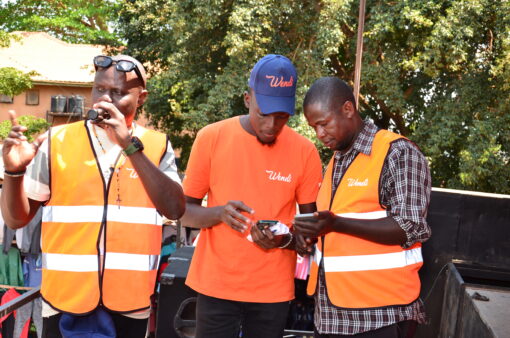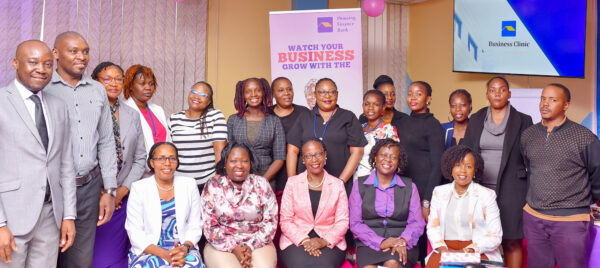Is there a planned demonstration over the so-called “garbage problem” in Katikolo village? Let me offer an alternative approach.
First, a story about East and West Germany during the Cold War.
At that time, Germany was split into two nations: East Germany, a staunchly communist state, and West Germany, which was capitalist. The Berlin Wall separated the two, symbolizing their vastly different ideologies and economic conditions. East Germany, being the poorer side, resented their wealthier neighbors to the West. One day, they decided to dump their garbage over the Berlin Wall, hoping to provoke a negative response.
But what did the West Germans do? Instead of reacting angrily, they sorted the garbage, used the biodegradable materials to create fertilizer, and grew beautiful flowers. When the flowers blossomed, they sent them back over the Wall with a note saying: “Everyone gives what they have. You cannot give what you don’t have.” East Germany threw garbage; West Germany returned flowers.
The story mirrors what we are experiencing here in Mukono Municipality today.
Mukono struggles with waste management issues, not just in the town center but also in smaller townships like Nakifuma, Kalagi, Namataba, and Katosi. It’s clear that we must change how we view and tackle this challenge—moving away from a narrow focus on garbage as a problem and instead seeing it as a potential opportunity.
Politicians and Leadership
I hear there are some politicians planning to hold protests to draw attention to the issue. But leadership isn’t about pointing fingers; it’s about finding solutions. Mukono’s garbage problem has long been a discussion point, but it’s been framed in the usual way—the garbage problem. What if we flipped the narrative? Why not view garbage as an opportunity instead?
As a leader, instead of leading protests, I would advocate for the Council to implement sustainable, long-term solutions, including the following initiatives:
Solutions to Katikolo’s Garbage Challenges
- Establish a Community Waste Management Cooperative:
- Form a cooperative to oversee waste management, recycling, and community ownership of the problem. Residents can explore revenue-generating activities like sorting, recycling, and composting.
- Income can be earned through selling recyclable materials such as plastics and metals to industries or partnering with waste management firms.
2. Implement a Community Recycling and Upcycling Initiative:
- Conduct training sessions on how to recycle and upcycle waste into marketable products, such as organic manure, crafts, or construction materials.
- For example, organic waste can be converted into biogas or high-quality compost for local farmers, while plastic bottles can be used in construction projects or for crafting art pieces.
3. Set Up a Community Waste-to-Energy Project:
- Explore the feasibility of a small-scale waste-to-energy plant to convert biodegradable waste into biogas, reducing landfill waste while providing a renewable energy source.
- Partner with local businesses and the Mukono municipality through Public-Private Partnerships (PPP) for funding and expertise.
4. Promote Waste Segregation at the Source:
- Educate households on separating organic, recyclable, and hazardous waste, making waste management easier and reducing the environmental impact.
5. Create Community Cleanup Programs and Eco-Friendly Campaigns:
- Organize regular cleanup exercises involving residents, schools, and local leaders to improve the neighborhood. Complement these efforts with educational campaigns to promote responsible waste disposal habits.
Transform former dumping sites into green spaces or small parks, making the environment more livable and attractive.
Turning Problems into Opportunities
- Establish a Waste-Based Small Business:
- Encourage entrepreneurial ventures like producing eco-bricks, paving materials, or crafts from upcycled waste. Partnerships with circular economy organizations can provide funding, training, and marketing support.
2. Introduce a Plastic Buyback Program:
- Partner with companies to create buyback programs for plastic waste, offering incentives for collected plastics. This would not only reduce plastic pollution but also generate income for low-income families.
3. Create Employment through Waste Management:
- Launch a community-run waste collection service, employing local youth to handle garbage collection and transportation. This approach could replace De Bin Kampala, whose involvement has been controversial.
4. Establish an Educational and Eco-Tourism Site:
- A well-managed waste-to-energy or recycling plant could serve as a learning center for schools, researchers, and tourists interested in sustainable waste management, generating income through eco-tourism.
Role of Local Government and Stakeholders
- Mukono Municipality Council: Provide technical support, facilitate partnerships, and offer incentives for businesses adopting environmentally friendly practices.
- Private Sector Partnerships: Fund, equip, and offer technical expertise for advanced waste processing.
- Non-Governmental Organizations (NGOs): Run training programs and educational resources to empower the community.
Addressing the garbage challenge in Katikolo requires a change in perspective—from viewing waste as a problem to treating it as a resource. By implementing these strategies, the community can turn this issue into an opportunity for growth, employment, and sustainability.
The writer is Mike Ssegawa – a journalist, former councilor at Mukono Municipal Council, and currently the Deputy Resident District Commissioner for Mukono.

 Companies Rise or Fall on How Well They Renew Their Leaders
Companies Rise or Fall on How Well They Renew Their Leaders

